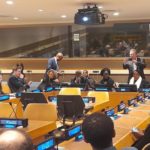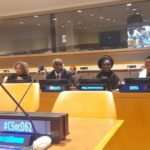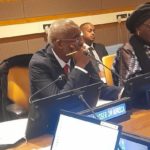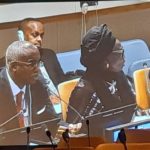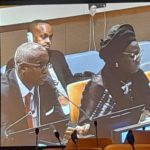After having experienced during the last two decades, a deep crisis (regional wars, armed conflicts, drought, refugee flows) resulted in a deterioration of its financial situation, its competitiveness and its economic and social infrastructure resulting in a deterioration of living conditions population, the Djiboutian economy in recent years a significant growth. But it appears that this growth has not affected the poor and very poor social strata located overwhelmingly in the District of Djibouti and rural areas within the country. Faced with this situation of poverty, the government had put in place a wide policies, programs and a battery of measures aimed to reduce poverty and that (i) improving the living conditions of populations through access the poor to basic social services, (ii) supporting the decentralization policy and (iii) strengthening the operative institutions in the field of the fight against poverty.
In May 2004, the government adopted a long-term strategy to combat poverty through the promulgation of the « Law of Social and Economic Orientation for 2001-2010 » and the development of the » Strategic Framework for Poverty Reduction (PRSP) . » The PRSP was based on the observation that Djibouti do not have easily exploitable natural resources and a large rural sector , the outlook for economic growth had come from an economic paradigm reconciling the injunctions of the Bretton Woods institutions , the competitiveness of the economy and the acceleration of the macro -economic growth. The implementation of the PRSP has achieved some goals that contributed to the relatively poverty alleviation in the country.
Despite the many obstacles encountered in the implementation of the PRSP ( financial crises , heavy debt burden , civil war etc. . ) The Republic of Djibouti is firmly committed to eradicate and end human poverty . The Head of State has decided to make this goal a priority for government action and implemented in January 2007 , a new » National Initiative for Social Development INDS » draft democratic and modern society a site mandature permanently open.
This new » INDS » (developed after broad consultation process at the national , regional , sectoral and between all parts of the nation ) embodies the » values of tolerance , solidarity and dedicated religious precepts as the basis for its commitments. It also draws a conclusion uncompromising highlighting that large sections of the Djiboutian population living in difficult conditions of poverty and marginalization , incompatible with the conditions of a dignified and decent life, and that short-term actions conducted to provide a solution to this situation have not led to the desired especially as the uneven distribution of economic growth has benefited a group of the population leaving another in a situation of social misery expectations.
The INDS must therefore consider the solution to social problems through integrated policy , which in the context of a comprehensive and coherent project where political, social , economic, educational , cultural and environmental dimensions must be combined and is complete . Ellei fully involve all stakeholders ( Government, Elect , Civil Society , Private Sector , Donors , etc.).
Four priorities are defined in the INDS , namely:
i / the promotion of access to basic social services ,
ii / the restructuring of the national productive apparatus to create the necessary and sufficient to eradicate poverty and reduce unemployment job
iii / assistance to highly vulnerable people or specific needs.
iv / Good Governance
The Initiative funding must be made according to a specific financial mechanism without increasing taxes or taxes , which is able to ensure the sustainability of resources and an efficient facilitation of the implementation.
Finally, the objectives of the INDS therefore require , in addition to general resources to be provided to reduce poverty , ( i) the development of specific social protection programs to mitigate the social divide , ( ii ) development implement significant new financial and material resources , (iii) the establishment of a structure for the professional integration of young people in the workplace .


